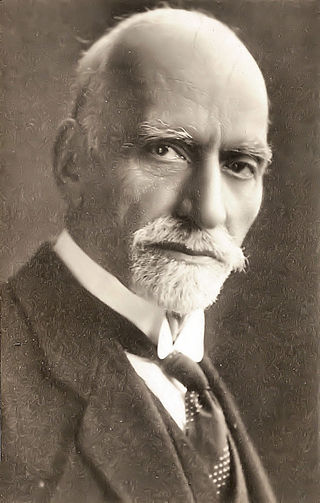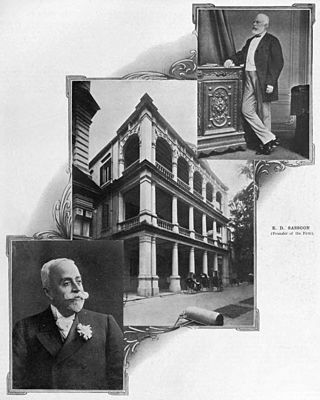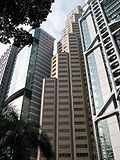
The Middle East is a geopolitical region encompassing the Arabian Peninsula, the Levant, Turkey, Egypt, Iran, and Iraq. The term came into widespread usage as a replacement of the term Near East beginning in the early 20th century. The term "Middle East" has led to some confusion over its changing definitions, and being seen as too Eurocentric. The region includes the vast majority of the territories included in the closely associated definition of West Asia, but without the South Caucasus, and additionally includes all of Egypt and all of Turkey.

As a direct consequence of the country's poverty, Yemen compares unfavorably with its Middle Eastern neighbors in terms of transportation infrastructure and communications network. The roads are generally poor, although several projects are planned to upgrade the system. There is no rail network, efforts to upgrade airport facilities have languished, and telephone and Internet usage and capabilities are limited. The Port of Aden has shown a promising recovery from a 2002 attack; container throughput increased significantly in 2004 and 2005. However, the expected imposition of higher insurance premiums for shippers in 2006 may result in reduced future throughput. The announcement in summer 2005 that the port's main facility, Aden Container Terminal, would for the next 30 or more years be run by Dubai Ports International brings with it the prospect of future expansion.

The Arab world, formally the Arab homeland, also known as the Arab nation, the Arabsphere, or the Arab states, comprises a vast group of countries, mainly located in Western Asia and Northern Africa. While the majority of people in the Arab world are ethnically Arab, there are also significant populations of other ethnic groups such as Berbers, Kurds, Somalis and Nubians, among other groups. Arabic is used as the lingua franca throughout the Arab world.
The Chartered Bank of India, Australia and China was a bank incorporated in London in 1853 by Scotsman James Wilson, under a Royal Charter from Queen Victoria.

The Iraq Petroleum Company (IPC), formerly known as the Turkish Petroleum Company (TPC), is an oil company that had a virtual monopoly on all oil exploration and production in Iraq between 1925 and 1961. It is jointly owned by some of the world's largest oil companies and headquartered in London, England. However, today it is only a paper entity with historical rights and plays no part in the modern development of Middle Eastern oil.

The former communities of Jewish migrants and their descendants from Baghdad and elsewhere in the Middle East are traditionally called Baghdadi Jews or Iraqi Jews. They settled primarily in the ports and along the trade routes around the Indian Ocean and the South China Sea.

Mukalla is a seaport and the capital city of Yemen's largest governorate, Hadhramaut. The city is in the southern part of the Arabian Peninsula on the Gulf of Aden, on the shores of the Arabian Sea, about 480 kilometres east of Aden. It is the most important port city in the Hadhramaut region. It is also the sixth-largest city in Yemen, with a population of approximately 595,000 as of 2023. The city is served by the nearby Riyan International Airport.

The Aden Protectorate was a British protectorate in South Arabia which evolved in the hinterland of the port of Aden and in the Hadhramaut following the conquest of Aden by the Bombay Presidency of British India in 1839, and which continued until the 1960s. In 1940, it was divided for administrative purposes into the Western Protectorate and the Eastern Protectorate. Today, the territory forms part of the Republic of Yemen.

The Sassoon family, known as "Rothschilds of the East" due to the immense wealth they accumulated in finance and opium trade, are a Baghdadi Jewish family.

Sassoon Eskell, KBE was an Iraqi statesman, financier and politician. Also known as Sassoon Effendi, he was regarded in Iraq as the Father of Parliament. Eskell was the first Minister of Finance in the Kingdom and a permanent Member of Parliament until his death. Along with Gertrude Bell and T. E. Lawrence, he was instrumental in the creation and the establishment of the Kingdom of Iraq post Ottoman rule, and he founded the nascent Iraqi government's laws and financial structure.

The 14 July Revolution, also known as the 1958 Iraqi military coup, was a coup d'état that took place on 14 July 1958 in Iraq which resulted in the toppling of King Faisal II and the overthrow of the Hashemite-led Kingdom of Iraq. The Iraqi Republic established in its wake ended the Hashemite Arab Federation between Iraq and Jordan that had been established just six months earlier.

The Sheikhdom of Kuwait was a sheikhdom which gained independence from the Khalidi Emirate of Al Hasa under Sabah I bin Jaber in the year 1752. The Sheikhdom became a British protectorate between 1899 and 1961 after the Anglo-Kuwaiti agreement of 1899 was signed between Sheikh Mubarak Al-Sabah and the British government in India due to threats to Kuwait's independence from the Ottoman Empire.

Iraq was the world's 5th largest oil producer in 2009, and has the world's fifth largest proven petroleum reserves. Just a fraction of Iraq's known fields are in development, and Iraq may be one of the few places left where vast reserves, proven and unknown, have barely been exploited. Iraq's energy sector is heavily based upon oil, with approximately 94 percent of its energy needs met with petroleum. In addition, crude oil export revenues accounted for over two-thirds of GDP in 2009. Iraq's oil sector has suffered over the past several decades from sanctions and wars, and its oil infrastructure is in need of modernization and investment. As of June 30, 2010, the United States had allocated US$2.05 billion to the Iraqi oil and gas sector to begin this modernization, but ended its direct involvement as of the first quarter of 2008. According to reports by various U.S. government agencies, multilateral institutions and other international organizations, long-term Iraq reconstruction costs could reach $100 billion (US) or higher.

E.D. Sassoon & Co., Ltd. was a trading company operating in the second half of the 19th century and the first half of the 20th century predominantly in India, China and Japan.
The Emirate of Muhammara or Sheikhdom of Muhammara, sometimes also called the Emirate of Arabistan or Sheikhdom of Arabistan, was an autonomous emirate in modern-day Khuzestan province in Iran. during the late 19th and early 20th centuries, lasting until the Reza Khan re-established full control over the region in 1925. Officially it was part of Qajar Iran, but the broader Khuzestan region had already enjoyed a large degree of autonomy under the previous rule of the Banu Ka'b (1740–1840), under whom it had become thoroughly Arabized.

British foreign policy in the Middle East has involved multiple considerations, particularly over the last two and a half centuries. These included maintaining access to British India, blocking Russian or French threats to that access, protecting the Suez Canal, supporting the declining Ottoman Empire against Russian threats, guaranteeing an oil supply after 1900 from Middle East fields, protecting Egypt and other possessions in the Middle East, and enforcing Britain's naval role in the Mediterranean. The timeframe of major concern stretches from the 1770s when the Russian Empire began to dominate the Black Sea, down to the Suez Crisis of the mid-20th century and involvement in the Iraq War in the early 21st. These policies are an integral part of the history of the foreign relations of the United Kingdom.
Ezekiel Judah, or Yehezkel Yehuda or Yahuda or Ezekiel Judah Jacob Sliman was a Jewish communal leader, indigo, muslin and silk trader, philanthropist and talmudist of Baghdad, who migrated to India, leading the Baghdadi Jewish community of Kolkata in his lifetime and establishing the city's first synagogues.














